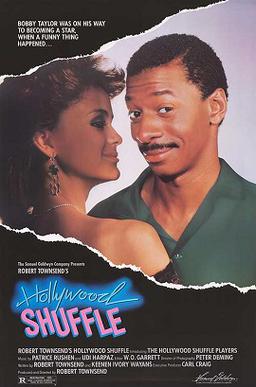I've been geeked about Red Tails for a while now. It's a movie about the Tuskegee Airmen and while there have been TV movies about it, this is going to be the first big screen film made about the mighty men of the 332nd Squadron who became the first Black fighter pilots in American military history.
One of my last projects in college was to create a website on the Airmen and I studied them with a passion. I learned about the leadership of Col. Benjamin O. Davis Jr. and how much pressure he, his father and other Black flying pioneers put on the military to put his men to work. How Eleanor Roosevelt lent her support to their training program. How the Black press fueled it by creating the Double V campaign - "Victory Abroad, Victory Here" - referring to Blacks still being treated as second class citizens.
It's ultimately, though, about those brave men who faced racism, prejudice and rose above it with hard work, diligence and ultimately success. Nothing was cooler than seeing color shots of the P-47 Thunderbolts or P-51 Mustangs with those painted red tails. When Americans saw that escorting their mission, they soon learned they were in good hands and the Airmen were treated as heroes in France and Italy.
It's a great story not just for the Black community, but for America to celebrate the first major war heroes of color who fought bravely and paved the way for the Army to be desegregated. All they wanted was a chance and they earned. It's a history lesson and a military one. But alas, it's not a surprise this movie took 23 years to make despite one of the biggest names in film behind it.
In that interview, George Lucas pretty much says Hollywood prejudice about Black films kept this movie from being done the last 23 years. Hollywood didn't think a movie with mostly Black actors would sell even with Lucas' muscle behind it. They said Black films like Tyler Perry's fit a certain niche and they'll accept it (let's also consider that Tyler Perry had to do a LOT of work himself to get Madea films done before a studio came calling)
Besides an mainly Black cast (including Oscar nominee Terrence Howard and Oscar winner Cuba Gooding Jr. returning from a 5-year absence) and 3-time Emmy winner Bryan Cranston, the film was mainly written by John Ridley (whose work includes Three Kings, Undercover Brother and several other films and novels), co-written by Boondocks creator Aaron McGruder and directed by Anthony Hemingway, who has directed episodes of CSI: NY, The Wire and Treme. The creative control was done with Black input.
Had a Black actor or writer made the same accusations Lucas did, they would have been dismissed but thankfully Lucas has enough clout to lend even more credibility to what he's saying. And he's right because if you consider Black films since the late 80's, they've mostly either succeeded or failed without major Hollywood support. It's been due to word of mouth, the Black press, movie critics who see the art in them or DVD sales.
 |
| One of the greatest movies to take a look at the dilemma facing Black actors in Hollywood. Hilarious, funny and on point. |
But the history of Black films has been one of incredible perseverance against the odds. Going back from Oscar Micheaux in the 20's and 30's to the rise of independent filmmakers/screenwriters like Robert Townsend, Keenan Ivory Wayans, John Singleton and Spike Lee in the 80's and 90's, they always had to operate out of the mainstream.
Consider that Danny Glover has long wanted to make a film about Haitian Revolution leader Touissant L'Overture, who led the only successful slave revolt in N. America. He has been told that a movie with a Black character at the center wouldn't be marketable with no White heroes and had to get to funding in Venezuela to make this movie.
Glory is one of my favorite movies. It succeeded because it was mainly told through the eyes of Col. Robert Shaw but it also had a strong Black cast that shined as they told of an all-Black fighting regiment in the Civil War that simply wanted a chance to prove themselves. Every time I watch it, it inspires me and it inspires people who've seen it of all races.
Does this make Hollywood racist? Not necessarily, it just means they think dollars first and especially when the industry is suffering, they're more afraid to take risks than before. But in the case of American heroes who fought with honor, made history and played a pivotal final role in desegregating the military, this story must be told and sold.
Above, some of the Tuskegee Airmen and below, the famed P-51 Mustangs they flew into battle.
So I'm asking everyone to please see Red Tails for two reasons. 1. Because I love the Tuskegee Airmen and we need to never forget their story or sacrifice or perseverance. 2. Because Hollywood doesn't think you'll make it successful. Because Hollywood believes the trend that only Black audiences support all Black films. Because Hollywood doesn't have faith in you supporting a movie even if George Lucas is producing it.
Then after you see it, do some more research on these American heroes. Most of the names used in the movies aren't the names of real Airmen. Go learn about General Benjamin O. Davis and the others who formed this group and check the website.



No comments:
Post a Comment